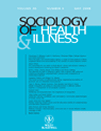
Medical Modeling of Obesity: A Transition from Action to Experience in a 20th Century American Medical Textbook
Abstract
Obesity is now the focus of considerable attention in the medical profession, and many have noted that obesity has been progressively medicalised. The subjection of phenomena to medical explanation, however, has been associated with both the potential to relieve and also to exacerbate the attribution of individual responsibility. In order to understand the ways in which a particular phenomenon, obesity, can be variously conceptualised at different time-points within a medical framework, we conducted a content analysis of a series of medical textbook entries. Using the widely-consulted Cecil Textbook of Medicine, we reviewed entries on obesity from 1927 to 2000 and found that throughout this period the text consistently maintains that obesity results from a simple excess of caloric intake over expenditure. Despite the unwavering nature of this basic model, an evolving set of causal factors is superimposed. Early models invoke aberrant individual activities, such as habitual overeating, while later editions drop these factors in favour of genetic and, paradoxically, environmental effects. Obesity shifts in ontological status, as it is transformed from being the product of something that individuals do to something that they experience. Concurrent with these changes, we find a change in the social appraisal of obesity. In each edition there is a narrative regarding the cost/benefit relationship between obese persons and society, as well as a construction of accountability for obesity as an outcome. Obese individuals are progressively held less responsible for their condition in successive editions of the text. Initially cast as societal parasites, they are later transformed into societal victims. Using these texts and obesity as a case-example, we demonstrate that medical conceptualisation of a presumably cohesive object of knowledge can undergo transformation quite independently of definitive experimental evidence, with a persistent dialectic between etiological configuration and formulations of social culpability and remediation. We situate our findings with respect to ongoing debates concerning the nature and implications of medicalisation. This case effectively highlights a more general epidemiological tension between an individual level of focus on risk behaviours and a population level of focus that contexualises behaviours within a social and material framework.
Citation:
V.W. Chang and N.A. Christakis, "Medical Modeling of Obesity: A Transition from Action to Experience in a 20th Century American Medical Textbook" Sociology of Health and Illness, 24(2): 151-177 (March 2002)